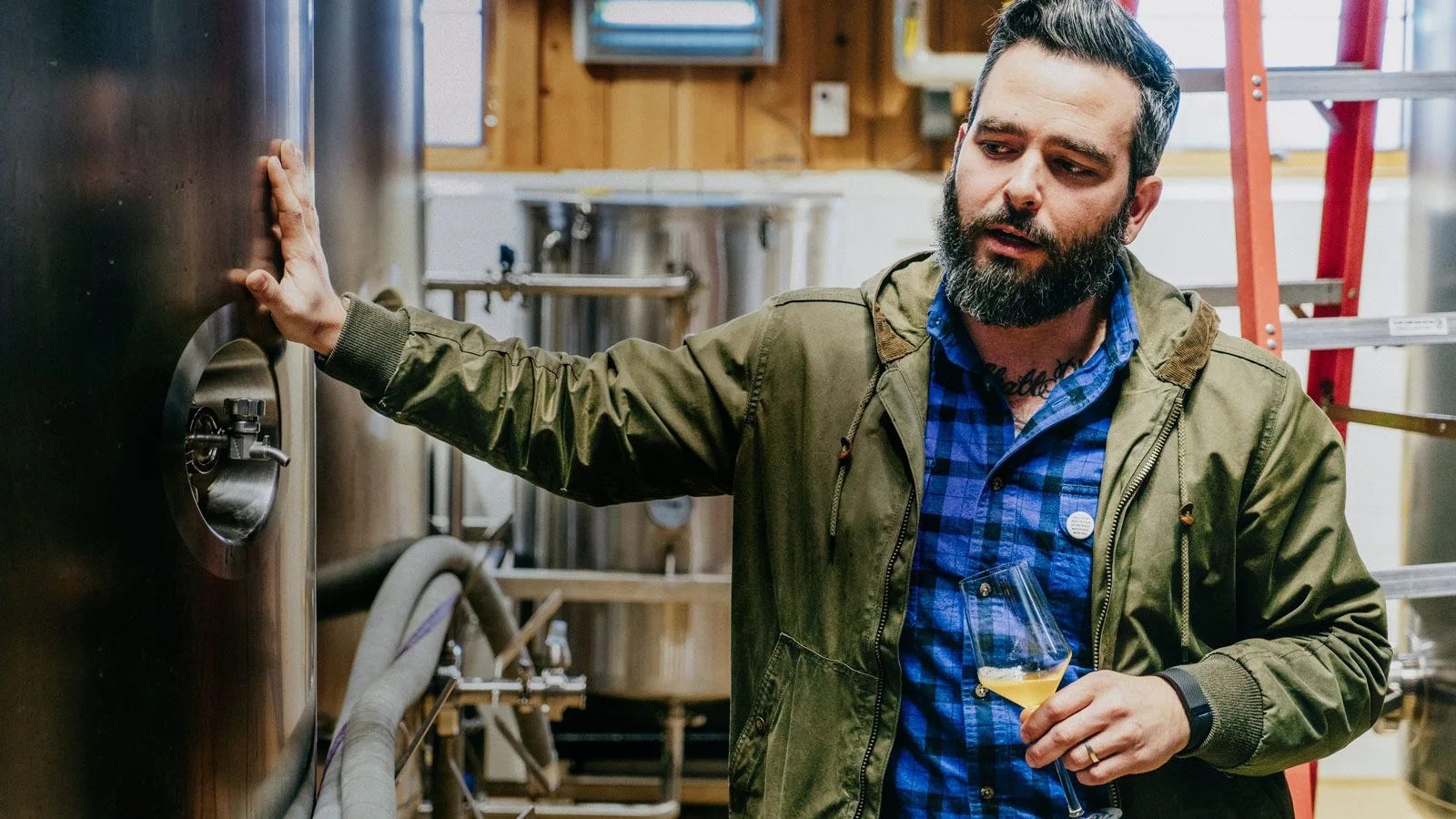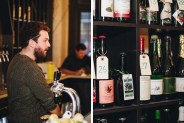Ryan Burk’s face welcomes guests on a TV sitting on an old truck inside the visitor’s center of Angry Orchard in Walden, New York. Burk flashes on the screen, rolling barrels, examining fruit. He’s handsome, like a lumberjack version of David Beckham — tattoos, strong bone structure. But instead of high fashion and puckering lips, he’s got an edge. Still visible are closing gauge holes in his ears, evidence of a past life in hardcore bands. Burk’s refined his appearance, though. His hair is closely cropped and his beard is trimmed. He’s now the face of America’s largest cider company and the mind behind the most ambitious cider project in America.
Walden, the name of the village in Montgomery and the name of Angry Orchard’s orchard, is an hour and a half north of New York City, in the middle of the Hudson River Valley. The area sprawls with apple trees. Driving through the backroads, snared and entangled branches form manicured rows in orchards and forgotten trees pop up in overgrown sections of brush along the roadside.
Angry Orchard purchased Walden from the Crist family 2015. The Crists had owned the Orchard since 1963 and farmed in the valley for more than 100 years. Jay Crist, a fourth-generation apple farmer, stayed on to help maintain the orchard with his wife and daughter. At the time, Angry Orchard was four years old, but it had already become America’s biggest cider company. It held nearly 40 percent of the market in its first year and sold roughly 14.95 million cases of cider in grocery stores in 2015, according to Nielsen Reports, dwarfing the sales of other mass-market ciders like the legacy brand Woodchuck (1.93 million cases sold) and the Budweiser-backed Johnny Appleseed (1.31 million cases).
Today, Angry Orchard, which is owned by the Boston Beer Company (home of Sam Adams), has a bad rap. Its offerings, considered by many elitists to be generic and mass produced, taint the company’s name in circles where craft is king. To its discredit, Angry Orchard has a caricature of a tree on its label and sells ciders like Cinnful Apple, a cinnamon-blended cider that tastes like it should live alongside Fireball instead of the beautiful ciders from the likes of Eden, EZ Orchards and West County.
To combat this reputation, the company set out in search of a home, a place where people could see and feel the experience of making cider. Prior to Walden, Angry Orchard made all of its cider in a large, nondescript facility in Cincinnati, where most of Sam Adams is also produced. It made its cider from a blend of heirloom fruit shipped over from France in concentrate form — there’s no other logistical way to do it — but the cider tasted sterile, mass produced and soulless. Walden gives Angry Orchard a sense of place. And Burk, whom the company hired two years ago to lead the project, is its spiritual savior.
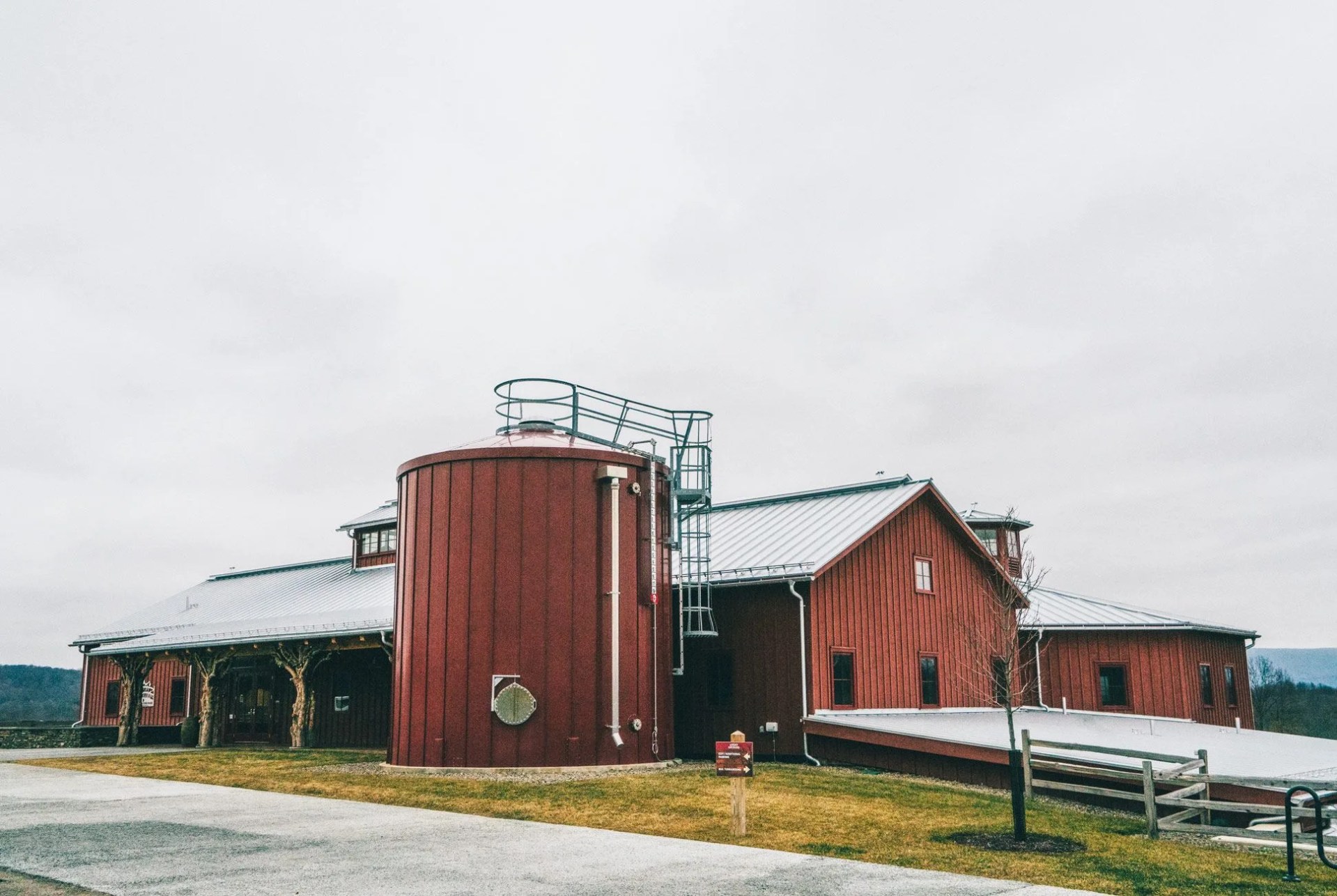
“What I take as a badge of honor is to help change that,” Burk said of Angry Orchard’s reputation for being a mass-produced cider brand that cares more about its profits than its product. “I believe that is not the case. I would be lying if I didn’t say four years ago I thought something different; I have said that I had to learn that,” Burk said to me over a flight of cider in a private tasting room at the Innovation Center.
For Burk, it came down to the realization that, yes, Angry Orchard is the big boy on the block, but that it also recognizes its place there. Cider is an agricultural product that relies on the farmers and the land. That’s sacred to him, and he had to come to understand that Angry Orchard recognized those values despite its size.
“We were never going to be a small cider company. We weren’t going to be the little guy,” Burk said. “And I think that we’ve really taken the measures to do the best we can by the beverage we care about, and that’s by getting the fruit, encouraging its growth, supporting farmers who grow it. There is a whole economy in Brittany, France [held up] by the cider we make. I think that is really important. The grower, to us, is the most important part, and we’re just lucky enough to get to play around with it.”
When I pressed Burk about the perception of Angry Orchard, he got defensive. I told him I don’t like Crisp, the company’s flagship cider — that there’s something in it that bothers me, a lingering sweet note that sticks to my tongue and a caramel smell that puts me off, plus the perception, from other cider snobs, that the company plays to the lowest common denominator.
“You don’t have to like it. I don’t really care,” Burk said. “To me, the intentions here are pure, and that’s what matters to me most. I knew that when I interviewed here and met everybody involved and saw what this was going to be. I saw that we were going to have an opportunity to raise an industry that needs to be raised. It’s almost become more than a job. It’s a responsibility and a mission.”
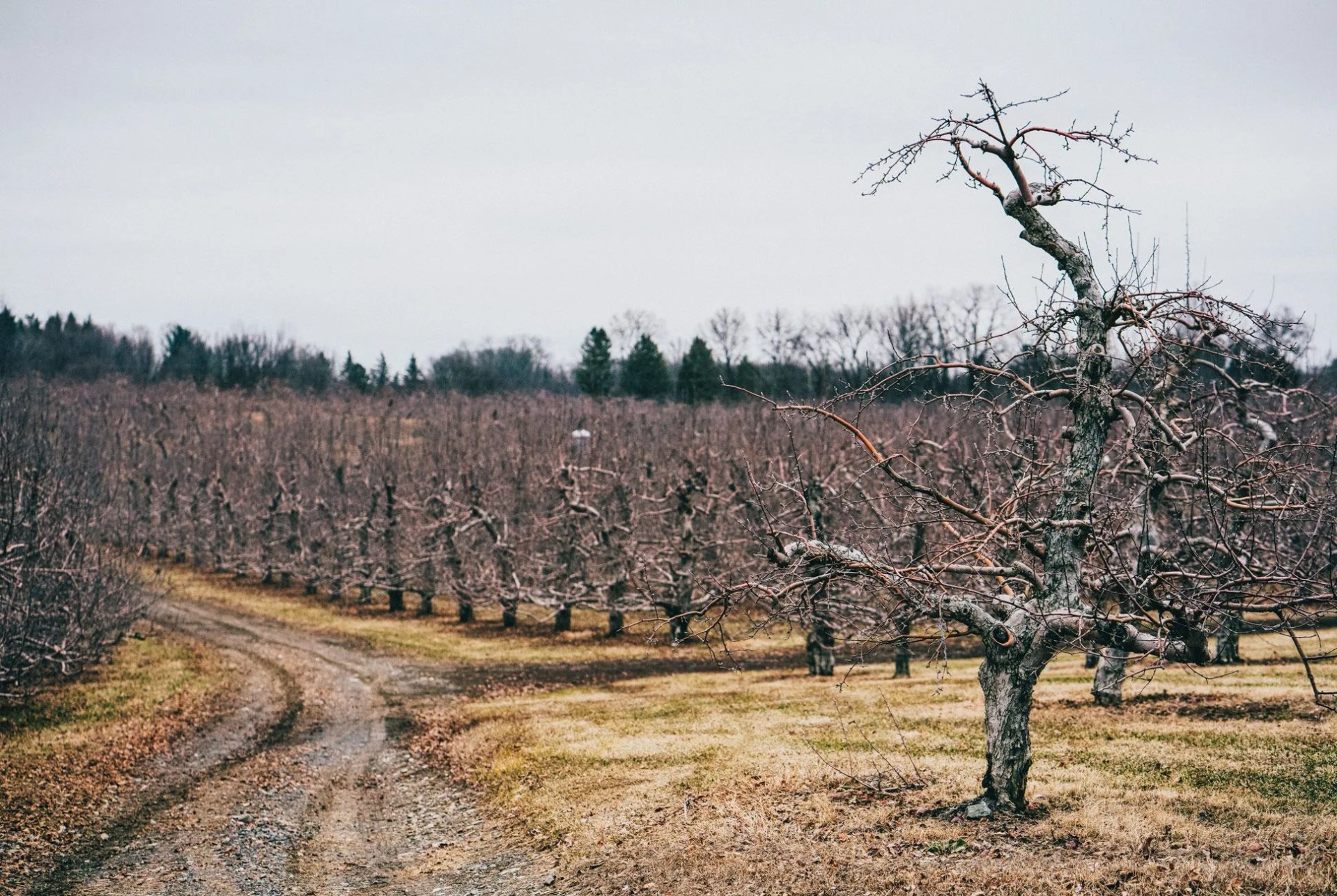
Burk grew up in Williamson, New York, a small town nestled between Rochester and Syracuse on Lake Ontario. The town motto reads “The Core of Apple Country,” for the town’s vast orchard space that feeds into Mott’s global cache of apple products.
In high school, Burk and his friends took fresh pressed cider and hid it in their parents’ barns, watching it ferment into their own hooch. Around the same time, he fell into the Syracuse hardcore scene, which was largely straightedge. Burk didn’t abstain from drugs and alcohol, but he adopted a vegan lifestyle when he was twelve years old. His choice forced him to start cooking for himself; his parents weren’t going to change their eating habits for their only child.
Veganism enhanced his palate. Instead of relying on tried-and-true shortcuts like pork or duck fat in a kitchen, he had to figure out other ways to make food taste good. This understanding is a huge plus when it comes to making craft beverages. Eventually, as an adult, he bought his own brewing equipment and started applying the knowledge he gained making barn cider to beer.
In 2007, after moving to Chicago, Burk started going to beer dinners at Whole Foods. There, he befriended fellow home brewers and began collaborating with them on their own underground beer dinners. What started out as a close-knit gathering of 30 friends grew into a series of illegal beer festivals. The last dinner brought more than 300 people. Almost all the original members of the group found professional brewing jobs. For Burk, destiny led to Virtue Cider. The cidery was the brainchild of Greg Hall, one of the family members behind Goose Island Brewing, where he was the brewmaster for more than 20 years.
At Virtue, Burk explored the limits of cider making, experimenting with different kinds of fermentation, oak aging and wild yeast strains. He collaborated with Tom Oliver of Oliver’s Cider — a seminal figure in the cider world; the pair worked on two of America’s most esteemed ciders, Ledbury and Gold Rush. As Virtue began to gain notoriety, it also ran into obstacles. It struggled to stay alive after the U.S. Department of Agriculture sanctioned Virtue for an unpaid bill to Farnum Hill, from whom Virtue sourced some of its apples.
After four years there, Burk met executives from Angry Orchard. The company was exploring a plan to open their own orchard in the United States for craft cider experimentation. A few months later, he got the call. Angry Orchard wanted him to lead the new project and help build it from scratch. He packed his things and moved back east to become American cider’s most important maker, and its loudest voice.
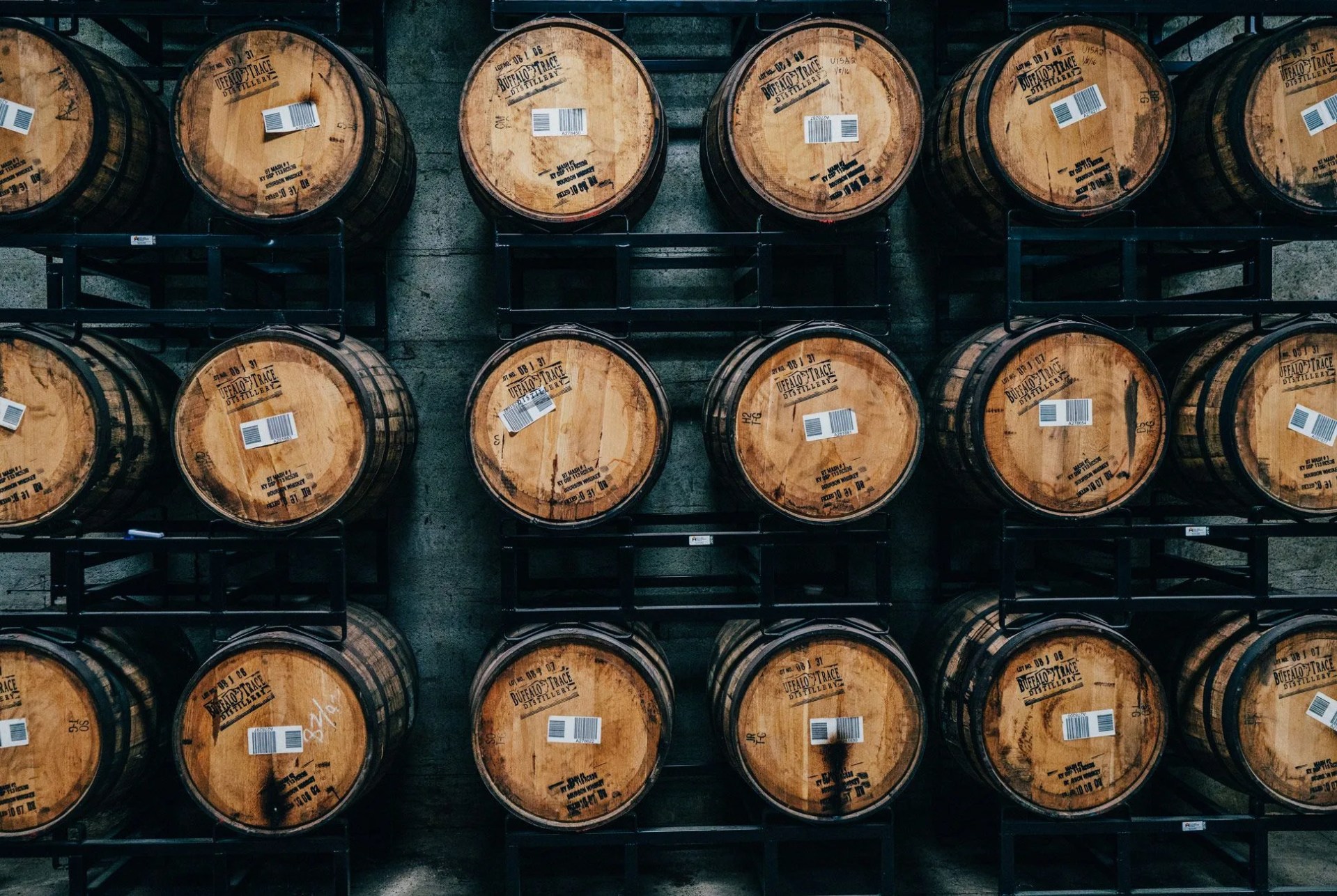
When I visited Burk in January, he was working on a keeved cider. Keeving is an ancient artisanal fermentation method that relies on slow, natural yeast and the formation of a bloom made up of natural pectin. Keeved cider, traditionally made northern France, is a lost art outside of the region because the results can be unpredictable. When successful, the cider is beautifully clear with an orange hue and a strong tannin backbone to balance out the sweeter notes that develop during the fermentation process.
At the Innovation Center, Burk grabbed a few wine glasses and took me to the fermentation tanks. He opened a tap and poured a beautiful orange cider. It smelled and tasted of sweet rot (in a good way) and finished dry, leaving me wanting more. Burk utilizes spontaneous fermentation to explore old-word cider techniques, in pursuit of something new and uniquely American. It’s why Angry Orchard hired him.
That freedom to dig into outer limits, paired with Burk’s ambition to make transcendent cider, is most apparent in First Flora, the first cider he made for Angry Orchard. After the company completed construction and installed the new cider-making system at Walden, Burk started three ciders without any yeast for the first four months. He wanted to see what natural yeast lived in the environment and how it would react with the first pressing of juice. First Flora is the first of those ciders. It fermented at 45 degrees and took three months to finish. The cider moved into oak barrels for aging before it was packaged raw; the only filtering came from cold-crashing.
First Flora is transcendent in the same way that some wines are magical. It has a beautiful body and a nice balance of tannin and acid, with a sharp finish and notes of apple. But it’s not apple in the way that people have come to understand the term “cider.” It’s not juice. It’s wine, and if it were on the same shelf as wine, with the same pricing standard, it would cost closer to $100 than the $20 it’s priced at on a shelf at Walden. This is the kind of cider that cider makers dream of making. It’s original and fresh. It makes your palate dance and your mind wander to a place and time. You can feel and taste its journey. That’s what Burk is going for.
“Part of our mission is to put cider in its place,” Burk said. “Not saying it’s an alternative to wine.”
Burk has begun pushing the boundaries of American cider. He’s embarked on a journey to not only redefine Angry Orchard, but also to promote some of America’s best cider makers through collaborations. Last year, he worked with the acclaimed Eleanor Léger of Eden Cider in Vermont. They produced a cider called Understood in Motion, which debuted at a dinner at the James Beard House in New York City.
At Walden, Burk has built an expansive and growing collection of different types of oak barrels for aging and fermenting. He’s started making Spanish-inspired ciders and ciders fermented in calvados barrels. He’s created two mainstream ciders for Angry Orchard, the Old-Fashioned and Knotty Pear — both built on balance and tannin, instead of leaning on novelty ingredients like jalapeños, pineapple, coffee, guava, rosemary or cuttlefish ink. His most ambitious project was the nationally released natural fermented cider Walden Hollow, which will evolve every year.
Burk developed Walden Hollow at Walden and then produced it on a mass scale at Angry Orchard’s main facility in Cincinnati. Burk had to watch it grow from afar. Unable to tinker, he had to work on faith that what he’d done at Walden would work out and scale wouldn’t be an issue. The cider exists between the company’s current line of products and the place where Burk plans to take Angry Orchard — a place where it stands up to producers from France, England and Spain.
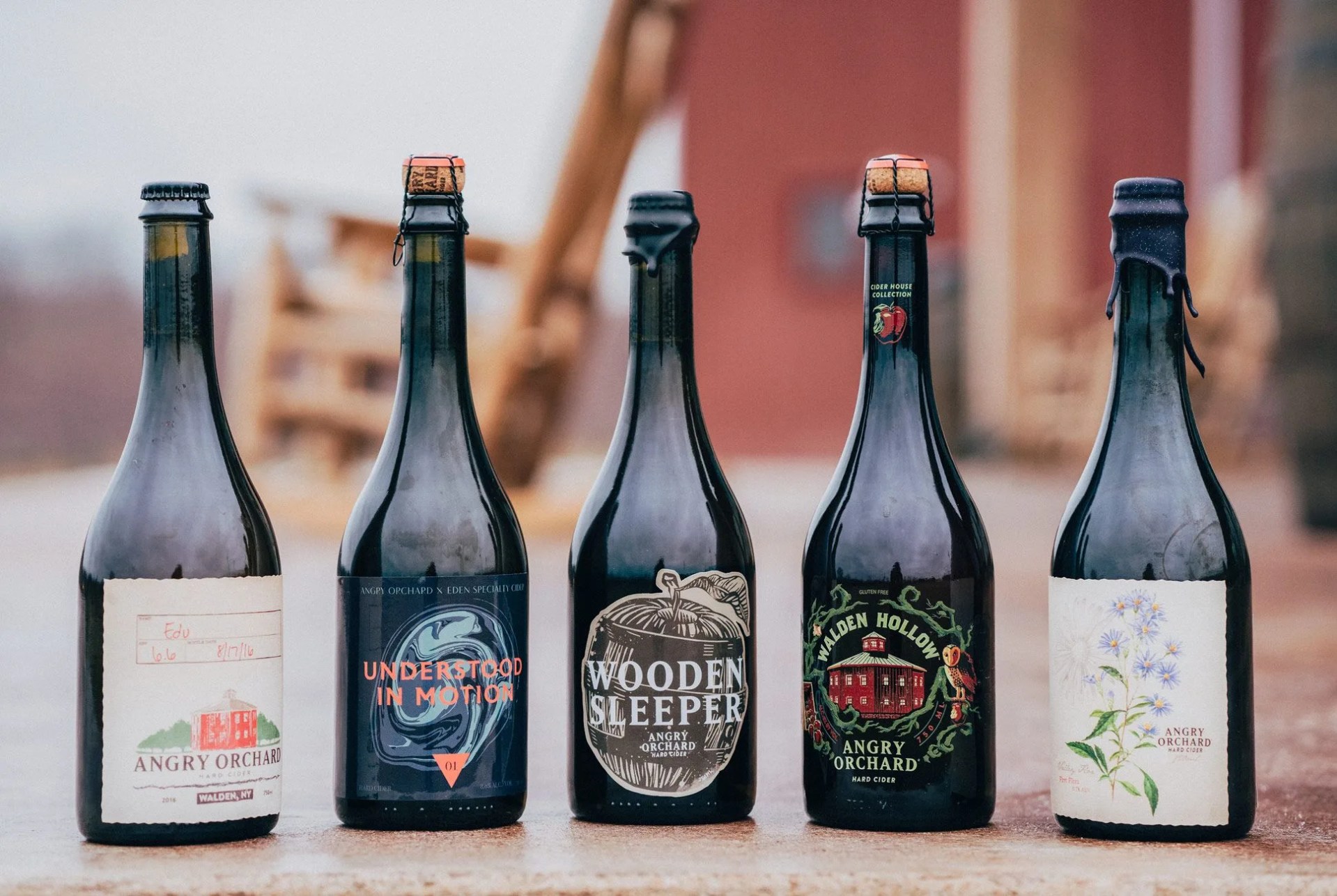
Before the gates at Walden sits a large barn, unassuming except for the giant letters ANGRY ORCHARD painted on it. There are no windows, and a deep, dark cold runs throughout. When Burk invited me inside, I found crates of apples stacked on top of one another, each marked by their orchard of origin and adorned with small tags to indicate the varietal. A beautiful bouquet lofted in the air, gently caressing my nostrils. He tossed me a small, golden crab apple and told me to bite into it. It tasted like honey, sweet but not sugary. It was flowery and superb. The apple had been aged in the crate, waiting for its turn to be pressed.
Burk became animated on the subject of the apples — where they’re from, what makes them special. According to him, each has its own story. It comes from a time and a place. A crop depends on the seasons and weather patterns. Cider is simply the expression of that. Burk doesn’t grow apples. His job is to tell their story, and Angry Orchard is his platform.
What struck me is how he gravitates towards the apples of his youth. He’s working with apples from his hometown, and few things make him happier than connecting with families and farmers he’s known his whole life. “One of my great pride points is that I am buying fruit from growers whose kids I grew up with,” Burk said. “It’s one of the high honors for me.”
